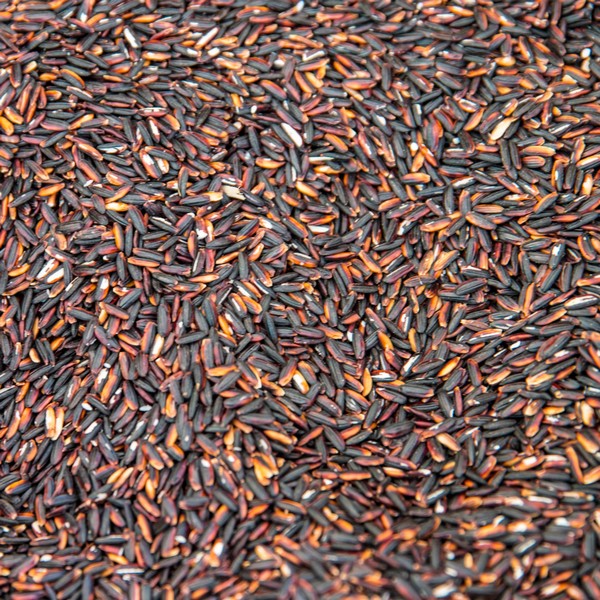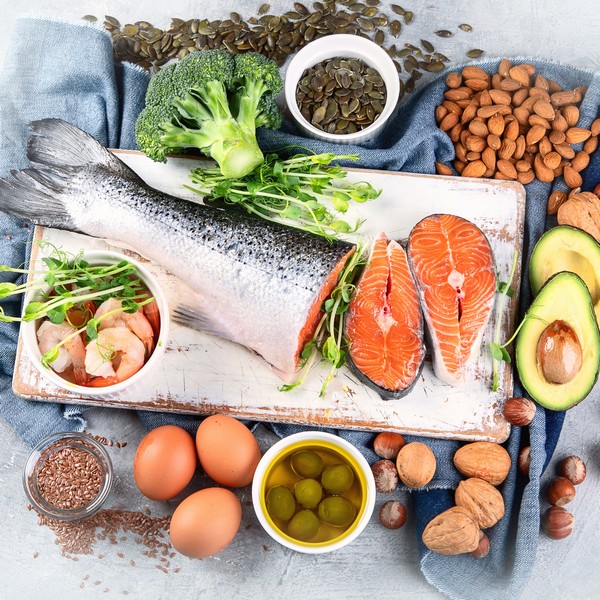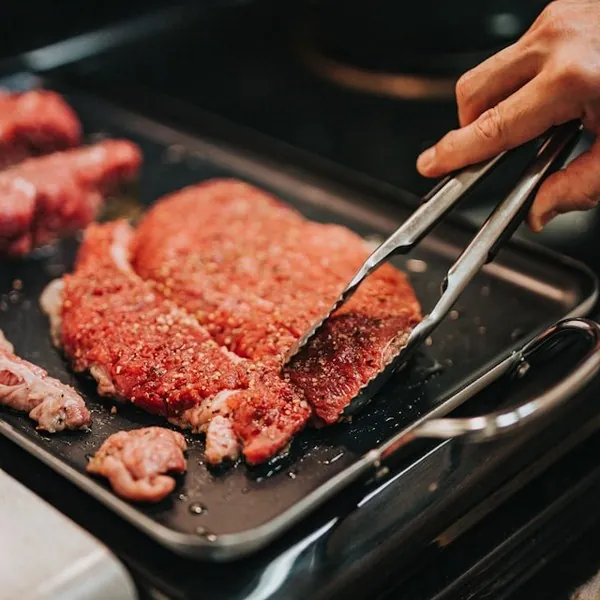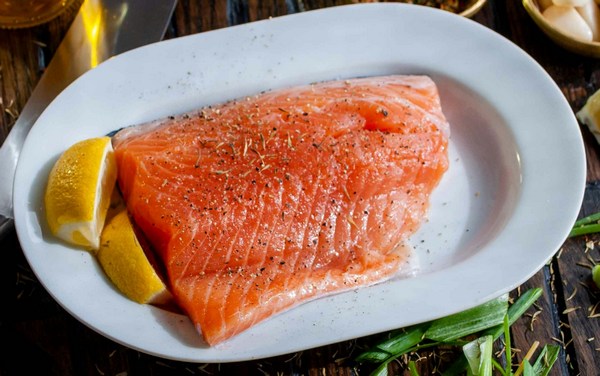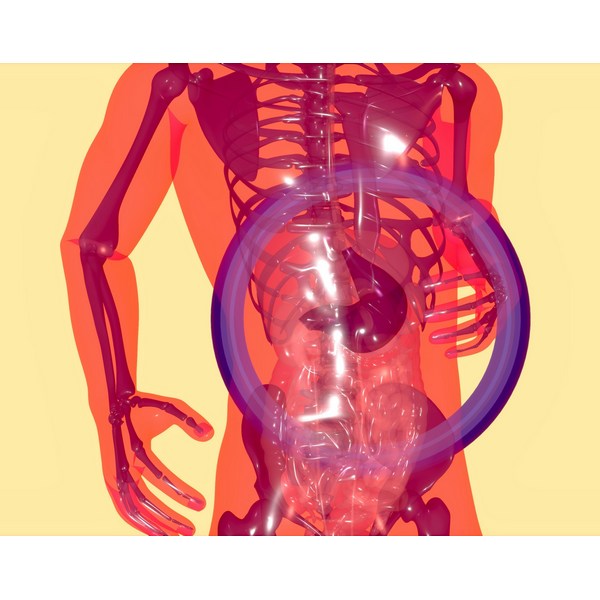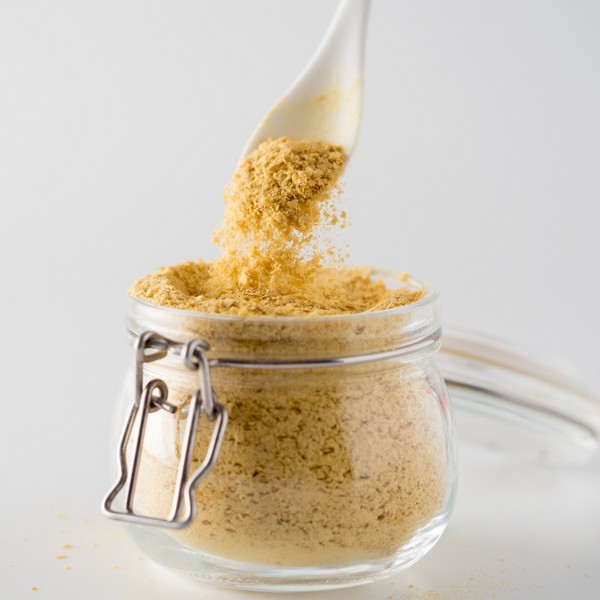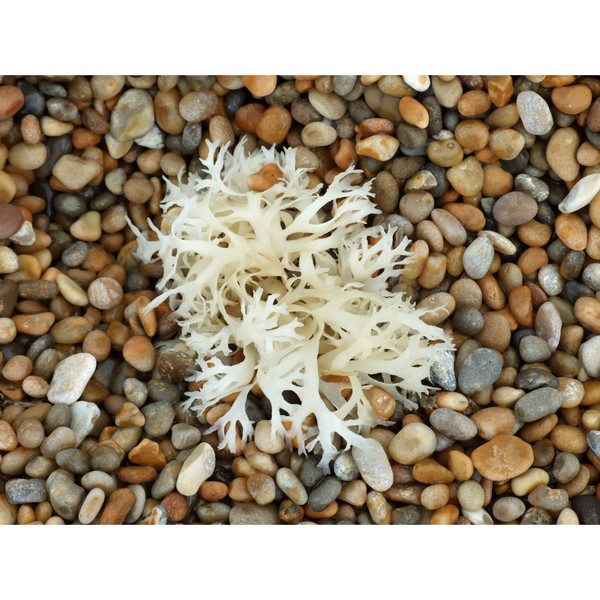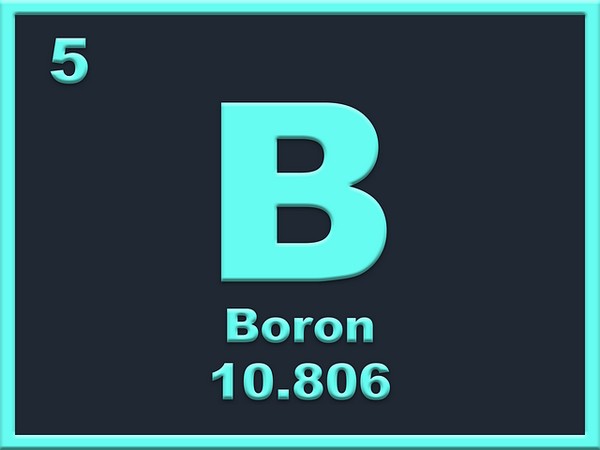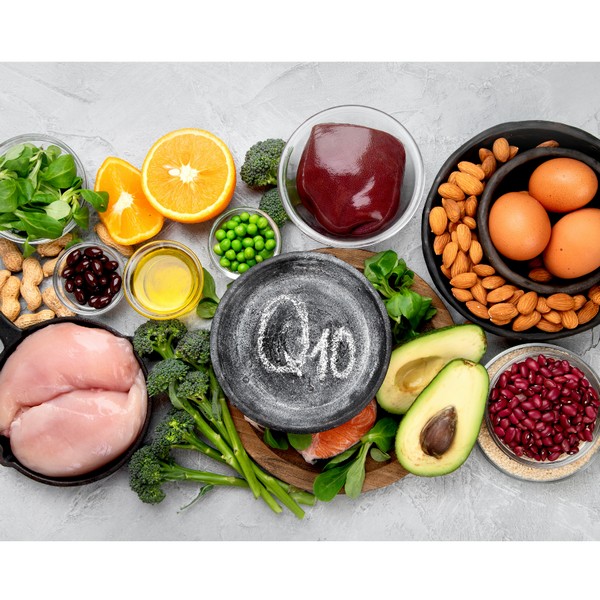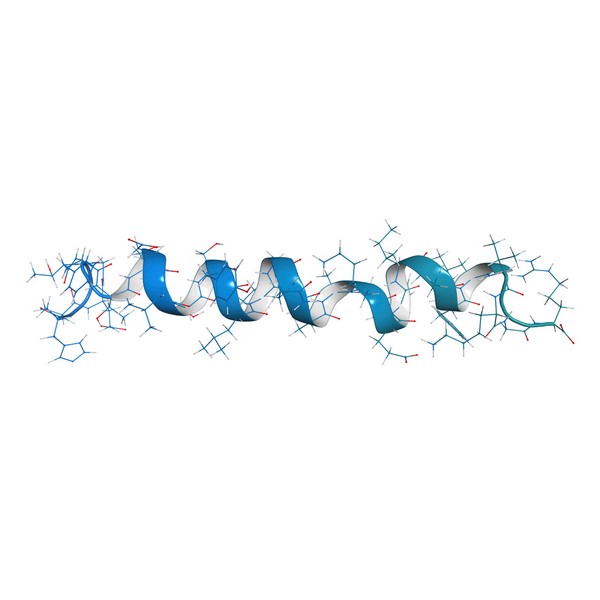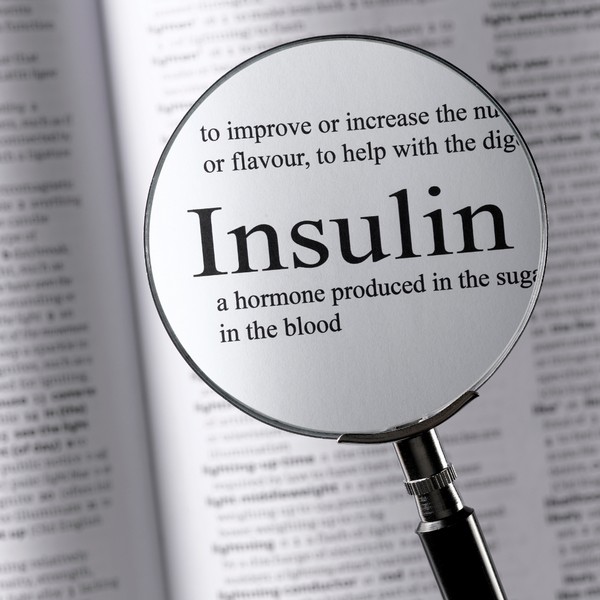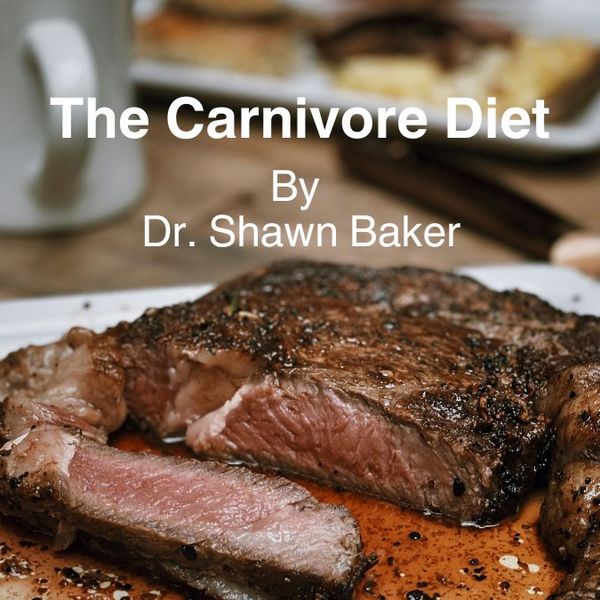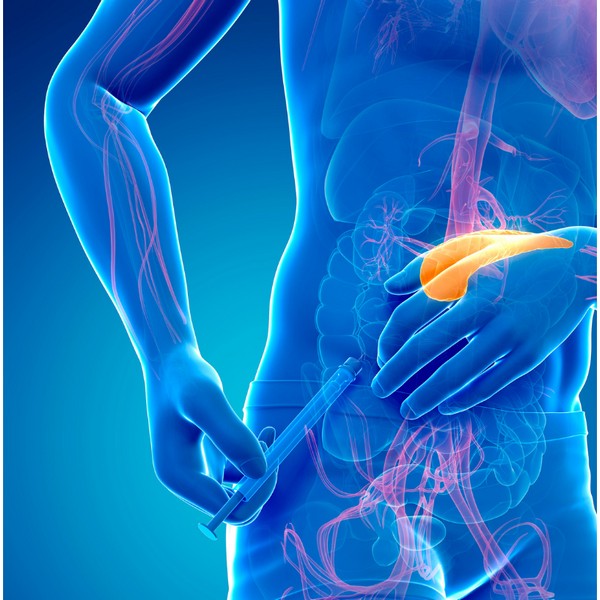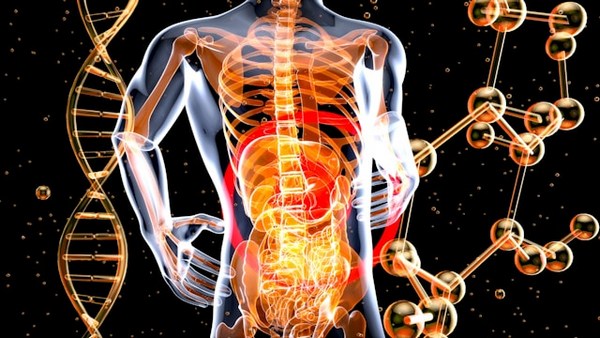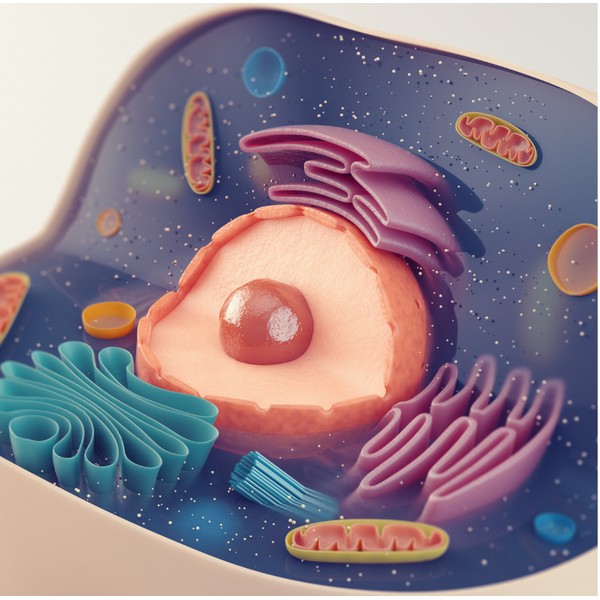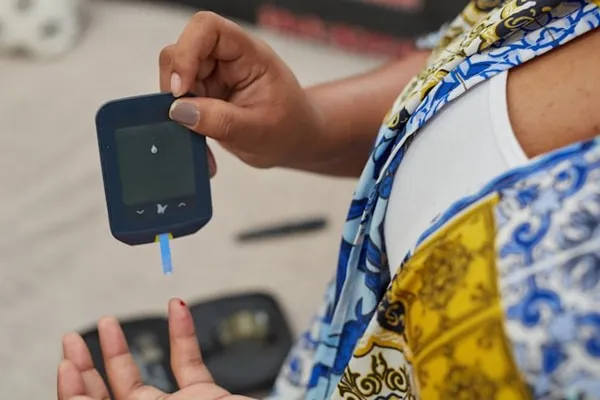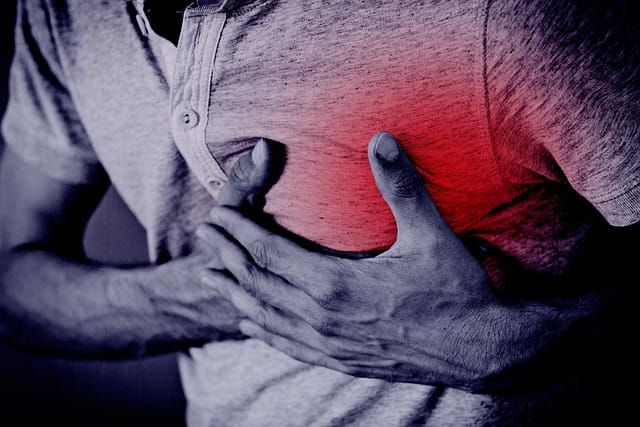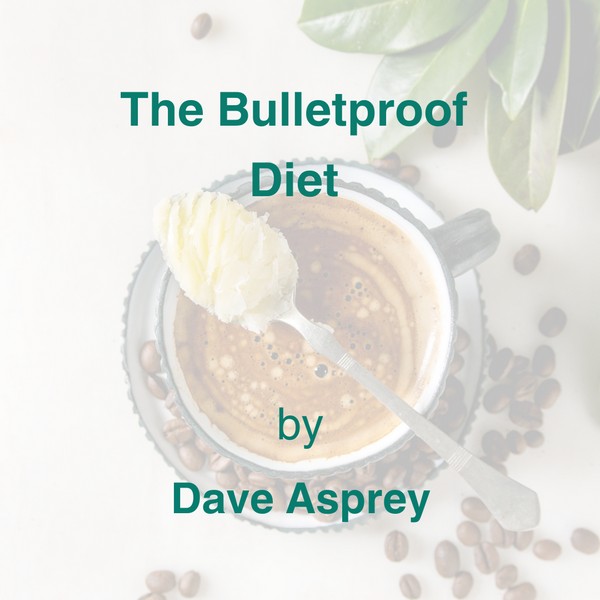Key Highlights
- The ketogenic diet is a low-carb, high-fat diet that can lead to weight loss and has many health benefits.
- By reducing carbohydrate intake and increasing fat consumption, the body enters a state of ketosis where it burns fat for energy instead of glucose.
- The ketogenic diet can help with weight management, improve blood sugar levels, and reduce the risk of heart disease.
- It is important to set realistic goals and expectations when starting the keto diet and to consult with a registered dietitian for guidance.
- Tracking your macronutrient intake and staying hydrated are recommended.
Table of Contents
Understanding Keto Basics
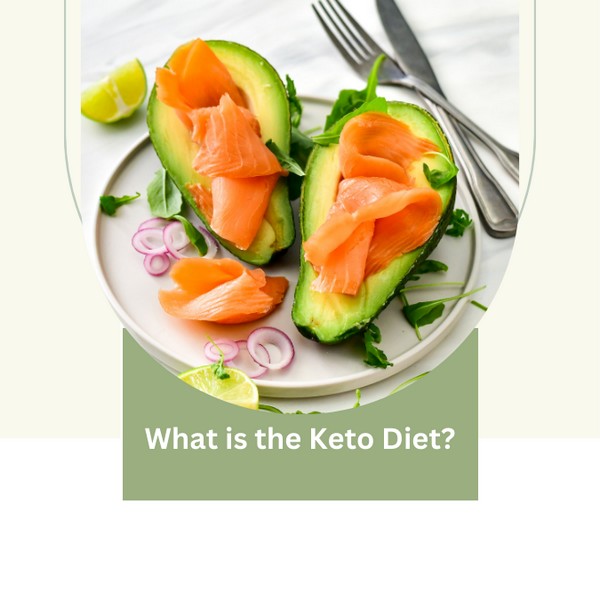
The keto diet focuses on high fat, moderate protein, and low carbs to shift the body into ketosis, burning fat for energy and aiding weight loss.
This diet reduces carbs to switch the body’s fuel to ketone bodies, offering benefits like improved blood sugar and heart health.
It’s essential to grasp keto basics and the science of ketosis, involving fat conversion into ketones for energy, to enhance weight management and health outcomes efficiently.
Preparing for Your Keto Diet Journey
For a successful keto journey, equip your kitchen with essentials like a food scale and quality cookware. Stock up on key ingredients like avocados and leafy greens.
Set realistic goals to keep motivated, and be ready for initial challenges such as the “keto flu.”
Maintain hydration and electrolyte balance for optimal success. Preparing for the journey and setting achievable goals are key. Stay focused and celebrate your progress.
Essential Kitchen Tools and Ingredients
Kickstart your keto journey by outfitting your kitchen with critical tools like a food scale for precise portion sizes, measuring cups, and sharp knives.
Fill your pantry and fridge with keto essentials:
- Seafood,
- Eggs,
- Meat,
- Avocados,
- Olive oil,
- Leafy greens for main meals,
- Coconut oil,
- Bell peppers, and
- Summer squashes for variety.
For snacks, keep almonds, green beans, and unsweetened coffee ready. These basics will anchor your keto meal plan, ensuring you’re set to whip up tasty, low-carb dishes that align with your weight loss and health goals.
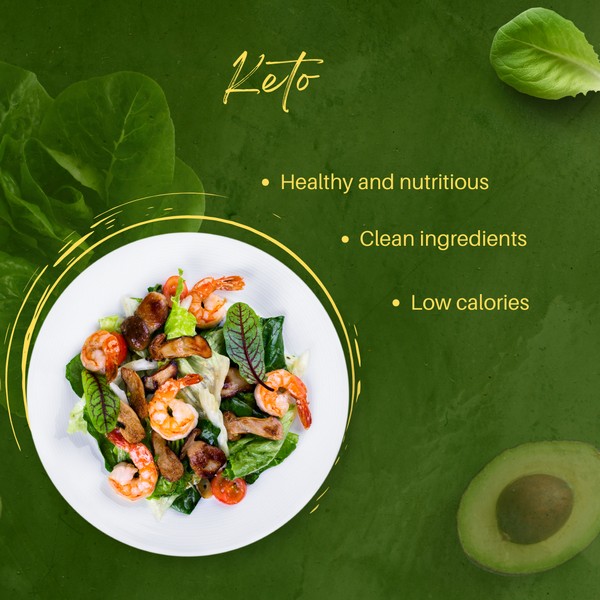
Setting Realistic Goals and Expectations
Starting your keto journey? Set realistic goals and keep expectations in check. Early rapid weight loss might slow down, influenced by factors like initial weight, metabolism, and activity. Keto is a long-term lifestyle, not a quick fix.
Aim for broader benefits, such as boosted energy and better health, beyond just scale numbers. Recognizing potential hurdles and milestones helps keep motivation high.
Beginner’s Guide to Keto Diet
Step 1: Clearing the Pantry of Non-Keto Foods
Remove high-carb items like sugary snacks, grains, and starchy vegetables. Next, bid farewell to processed foods, which are often high in hidden sugars and unhealthy fats.
Check labels for hidden carbs and unhealthy oils.
Eliminate sugary condiments and sauces that can sabotage your keto efforts. Replace these items with keto-friendly alternatives like avocados, olive oil, and low-carb vegetables.
Clearing out your pantry sets the stage for a successful transition to a ketogenic lifestyle. Creating a clean environment free of temptations will make it easier to stay on track and achieve your weight loss goals.
Step 2: Shopping for Keto-Friendly Foods
Make a detailed shopping list when looking for keto-friendly foods. Focus on high-fat and low-carb items like fatty cuts of meat. Incorporate leafy greens, bell peppers, and summer squashes for diversity.
Other essential items include ghee and or butter and unrefined sea salt.
Keto Shopping List
| Healthy Fats | Tallow, Ghee, Butter, C8 MCT Oil, Lard, Bacon Grease, Duck Fat, Coconut oil, Avocado oil, Olive oil |
| Fatty Red Meat & Organs | Beef, Lamb, Goat, Venison, Bison |
| Poultry & Eggs | Chicken, Duck, Quail |
| Dairy | A2 Cow, Sheep, and Goat Milk as well as aged cheeses |
| Leafy Greens | Cabbage, Lettuce, Watercress |
| Nuts | Coconut, Macadamia, Pili, Pistachios, Walnuts |
| Unrefined Sea Salt | Redmond Real Salt, Celtic Sea Salt, Baja Gold Salt, Himalayan Pink Salt |

Avoid starchy vegetables and grains. Opt for quality protein sources like lamb, seafood, and eggs. Check food labels for hidden sugars and excessive carbs.
Consider meal prep to stay on track and prevent impulsive food choices. With a well-planned shopping trip, you can set yourself up for keto success.
Step 3: Planning Your First Week’s Meals
Focus on incorporating high-fat foods like avocados, olive oil, and fatty fish. Include protein sources such as chicken, eggs, and nuts.
Opt for low-carb vegetables like leafy greens, bell peppers, and zucchini. Experiment with recipes that align with your preferences and dietary goals.
Plan your meals to avoid any last-minute temptations or fallbacks. Remember to stay hydrated and pay attention to your electrolyte levels to combat potential side effects.

Step 4: Understanding Macros and Tracking Intake
Keep carbs low, ideally under 50g per day, to propel your body into ketosis. Proteins fuel muscle growth while fats serve as your main energy source.
Tracking your daily intake using apps like MyFitnessPal ensures you stay on target. Embrace the power of knowledge; understanding macros empowers you to customize your meal plan for ultimate success.
Step 5: Staying Hydrated and Managing Electrolytes
As fat loss leads to increased water loss, it’s vital to drink plenty of fluids. Hydration supports digestion, nutrient distribution, and body temperature.
Key electrolytes, including sodium, potassium, and magnesium, are essential for optimal nerve and muscle function.
Incorporating mineral-rich foods such as leafy greens, avocados, and nuts into your diet, along with electrolyte supplements, can help keep these levels balanced.
This approach not only combats keto flu symptoms like fatigue and muscle cramps but also facilitates a smoother transition into ketosis and enhances overall health and performance.
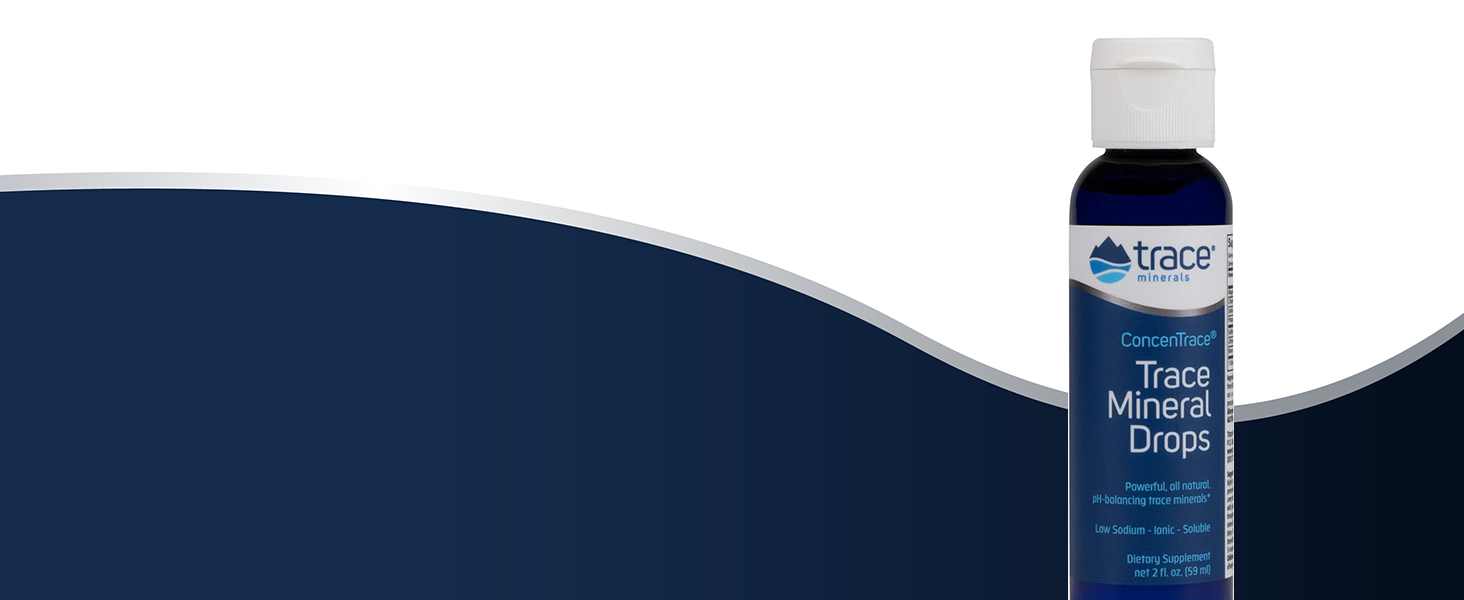
What to Eat and What to Avoid
Focus on high-fat foods like grass-fed ghee, butter, and fatty fish. Add high quality protein sources such as red meat and eggs. Garnish with small servings of well tolerated low-carb vegetables like leafy greens.
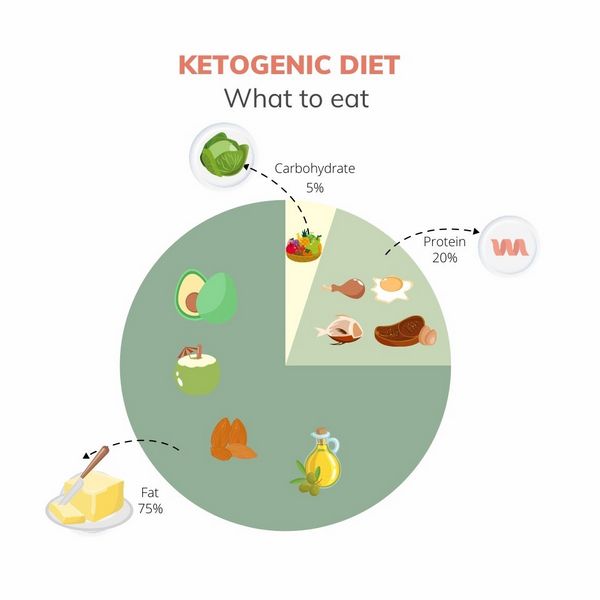
Foods to Eliminate from Your Diet
Avoid certain foods that can mess up your progress.
- High-carb items like bread, pasta, rice, and sugary treats are top on the list.
- Starchy vegetables such as potatoes and corn should also be removed.
- Fruits high in sugar content like grapes, bananas and mangoes are not keto-friendly.
- Say goodbye to legumes and beans due to their carb content.
- Processed foods containing hidden sugars and carbs.
Challenges and Solutions
To combat the infamous keto flu, stay hydrated and replenish electrolytes. Dining out or social events?
Prioritize protein and veggies, and avoid carb-heavy temptations.
Recognize that this dietary shift can cause temporary discomfort but leads to long-term benefits. Remember, adjustments are normal; monitor your progress diligently.
Celebrate small victories, like improved energy levels and weight loss. Stay committed, stay informed, and the keto journey will become smoother with time.
Overcoming Keto Flu and Other Initial Hurdles
Ensure adequate hydration and electrolyte intake, including sodium, magnesium, and potassium-rich foods. Gradually reducing carbohydrate intake can also mitigate keto flu symptoms.

Increasing healthy fat can provide sustained energy levels. Remember, these hurdles are temporary and signify your body’s adjustment to a new metabolic state.
Persisting through this phase sets the foundation for long-term weight management and reaping the full benefits of the ketogenic diet.
Tips for Dining Out and Social Events
When dining out or attending social events on a keto diet, choose grilled proteins like salmon or steak and non-starchy vegetables. Request dressings and sauces on the side to control your fat intake.
Substitute high-carb sides with salads or extra vegetables. Choose dishes without breading or sugary glazes to avoid hidden carbohydrates.
Avoid bread baskets and sugary drinks, opting for water or unsweetened coffee instead.
In social settings, communicate your dietary needs politely to ensure your meal aligns with your keto goals. Prioritize whole, nutrient-dense foods while being mindful of your carbohydrate intake.
Be creative and flexible with menu choices while staying committed to your health objectives.
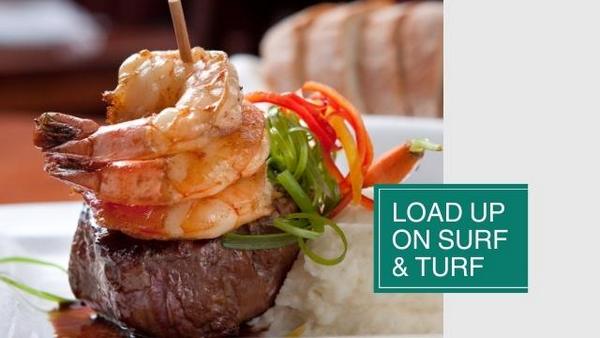
Recognizing and Celebrating Progress
Tracking progress on the keto diet is crucial for motivation. Celebrate milestones like weight loss, improved energy, or better mental clarity. Monitor health indicators such as blood sugar levels, blood pressure, and body composition changes.
Recognizing small victories enhances adherence and boosts confidence. Any positive shift in cravings, energy levels, or clothes fitting better is progress worth celebrating.
Take note of non-scale victories like increased endurance during workouts or improved focus at work.
Remember, progress is not solely about the number on the scale but also about overall well-being and sustainable health improvements. Celebrate each step forward on your keto journey.
Adjusting Your Plan as You Go
Whether it’s tweaking your macros or exploring new keto recipes, adapting your plan is essential for long-term success. As your body adjusts, you may need to reassess your calorie intake or protein levels.
Stay flexible and listen to your body’s signals.
Regularly monitor your progress, adjust your meal plan accordingly, and consult a registered dietitian if needed. Experiment with different food choices to keep your diet varied and enjoyable.
Remember, your keto journey is a personal one, so customize it to fit your lifestyle and goals. Embrace the process of fine-tuning your plan for sustainable results.
Beyond Weight Loss: Other Benefits of Keto
By utilizing ketone bodies as a primary energy source, the brain experiences enhanced clarity and focus. This mental sharpness and consistent energy make the keto diet attractive not just for weight management but also for overall well-being.
Individuals often find themselves more mentally alert and productive throughout the day, attributing these effects to the ketogenic state induced by the diet.
Sustained energy levels without the crashes associated with high-carb meals are a significant benefit that many keto followers appreciate.
Enhanced Brain Function and Energy Levels
I’m proud to share the results of my pilot trial investigating the therapeutic effects of a #ketogenicdiet on bipolar and schizophrenia, published in @PsychiatryResJ.
— Shebani Sethi, MD (@ShebaniMD) April 1, 2024
📈 We found promising improvements in BOTH metabolic and psychiatric outcomes: https://t.co/hheCUNg3ST pic.twitter.com/dwy1O5U5W6
By following a ketogenic diet, individuals may experience enhanced brain function and increased energy levels. Ketone bodies produced during ketosis serve as an efficient energy source for the brain, potentially improving cognitive performance.
Moreover, the stability in blood sugar levels on a keto diet can prevent energy crashes commonly associated with high-carb meals.
Research suggests that the high-fat, moderate protein intake characteristic of the keto diet may support brain health and function. Many people report feeling more mentally alert and focused after transitioning to a ketogenic lifestyle.
This boost in cognitive function can be especially beneficial for those seeking improved productivity and mental clarity.
| Brain Inury | Research indicates that a ketogenic diet may enhance recovery from traumatic brain injuries by using ketones for brain repair when glucose metabolism is disrupted. Early findings show it might reduce inflammation and aid cognitive recovery. |
| Alzheimer’s Disease | The ketogenic diet may benefit Alzheimer’s management by providing ketones as an alternative brain energy source when glucose use is impaired. Preliminary studies suggest it could reduce symptoms and slow disease progression, with some patients showing improved memory and cognition. |
| Epilepsy | The ketogenic diet is a proven approach in managing epilepsy, especially in children, by inducing ketosis which reduces seizure frequency and severity. Ketones are thought to help stabilize brain neurons. This diet has significantly improved seizure control for many, especially when medications fall short. |
| Parkinson’s Disease | Recent studies have indicated that the ketogenic diet might improve neurological health and specifically benefit those with Parkinson’s disease. One study noted improvements in the overall symptoms of Parkinson’s, including motor function and quality of life, suggesting that the diet may have neuroprotective properties. It’s believed that ketones might protect brain cells by reducing oxidative stress and improving mitochondrial function. |
Improved Blood Sugar and Heart Health
A key benefit of the keto diet is its positive impact on blood sugar and heart health. By reducing carbohydrate intake and increasing the consumption of healthy fats, the keto diet helps stabilize blood sugar levels and may lower the risk of heart disease.
Additionally, the keto diet may help lower blood pressure and improve cholesterol levels, further promoting heart health. These effects make the keto diet a valuable option for individuals looking to enhance their overall well-being.
Heart Disease:
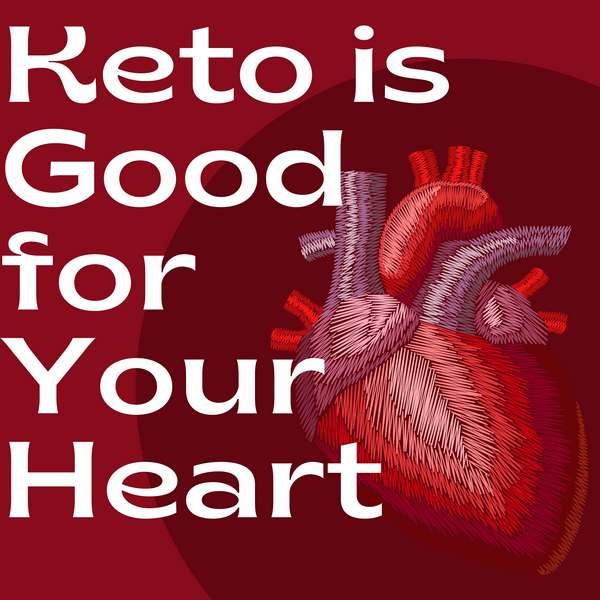
The ketogenic diet benefits heart health by reducing body fat and increasing HDL (good) cholesterol, which helps clear other cholesterol forms from the bloodstream.
It also lowers blood pressure and improves blood sugar levels, further reducing heart disease risk. A balanced keto diet could holistically enhance heart health factors.
Polycystic Ovary Syndrome (PCOS):
High insulin levels are a key issue in PCOS and can contribute to various symptoms, including weight gain, irregular menstrual cycles, and infertility.
By lowering insulin, the keto diet not only helps in managing these symptoms but also improves hormonal balance, which is crucial for overall reproductive health.
Studies have shown that women with PCOS following a ketogenic diet experience significant improvements in insulin sensitivity, weight management, and other metabolic health markers.
Cancer:
There is an ongoing investigation into the ketogenic diet as an adjunct therapy in cancer treatment. The basis for this interest lies in the diet’s potential to slow down the metabolic rate of tumor cells.
Cancer cells primarily rely on glucose for energy, and the keto diet drastically reduces glucose availability, thereby possibly inhibiting tumor growth.
Research is also exploring how this diet could complement traditional cancer treatments such as chemotherapy and radiation, potentially enhancing their effectiveness and reducing side effects.
Conclusion
In conclusion, embarking on a Keto journey requires dedication and understanding of the basics. By clearing out non-Keto foods, planning meals, and tracking macros, you set yourself up for success. Overcoming challenges like the Keto flu and adapting to social events are key milestones. Remember to monitor your health, celebrate progress, and be open to adjusting your plan. The benefits extend beyond weight loss, impacting brain function and heart health positively.
Remember to consult your professional healthcare provider before engaging in any health-related intervention.
Frequently Asked Questions
Can I ever have cheat days on Keto?
Indulging in cheat days on the keto diet can hinder your progress by kicking you out of ketosis. While occasional deviations are allowed, be cautious as it may affect your body’s adaptation to burning fat for fuel.
How do I know if I’m in ketosis?
To determine if you’re in ketosis, look for signs like increased ketones in breath or urine, reduced appetite, improved focus, and initial weight loss. You can also use ketone testing strips or blood meters for accurate results. Remember, consistency is key.
Is keto safe for everyone?
Keto is generally safe for most healthy individuals; however, those with certain medical conditions should consult a healthcare provider before starting. Monitoring electrolyte levels and hydration is crucial. Always personalize your approach to ensure safety and effectiveness.
How to transition off keto without gaining weight?
Gradually reintroduce carbs while monitoring portions. Focus on whole foods and mindful eating. Stay active to maintain metabolism. Prioritize nutrient-dense meals post-keto. Consult a nutritionist for personalized guidance. Remember, slow and steady wins the race!
Research
Broom GM, Shaw IC, Rucklidge JJ. The ketogenic diet as a potential treatment and prevention strategy for Alzheimer's disease. Nutrition. 2019 Apr;60:118-121.
https://pubmed.ncbi.nlm.nih.gov/30554068/
Brinkworth GD, Buckley JD, Noakes M, Clifton PM, Wilson CJ. Long-term effects of a very low-carbohydrate diet and a low-fat diet on mood and cognitive function. Arch Intern Med. 2009 Nov 09;169(20):1873-80.
https://pubmed.ncbi.nlm.nih.gov/19901139/
Choi YJ, Jeon SM, Shin S. Impact of a Ketogenic Diet on Metabolic Parameters in Patients with Obesity or Overweight and with or without Type 2 Diabetes: A Meta-Analysis of Randomized Controlled Trials. Nutrients. 2020 Jul 06;12(7).
https://pubmed.ncbi.nlm.nih.gov/32640608/
D'Anci KE, Watts KL, Kanarek RB, Taylor HA. Low-carbohydrate weight-loss diets. Effects on cognition and mood. Appetite. 2009 Feb;52(1):96-103.
https://pubmed.ncbi.nlm.nih.gov/18804129/
Dhillon KK, Gupta S. StatPearls [Internet]. StatPearls Publishing; Treasure Island (FL): Feb 6, 2023. Biochemistry, Ketogenesis.
https://www.ncbi.nlm.nih.gov/books/NBK493179/
Gardner CD, Landry MJ, Perelman D, Petlura C, Durand LR, Aronica L, Crimarco A, Cunanan KM, Chang A, Dant CC, Robinson JL, Kim SH. Effect of a ketogenic diet versus Mediterranean diet on glycated hemoglobin in individuals with prediabetes and type 2 diabetes mellitus: The interventional Keto-Med randomized crossover trial. Am J Clin Nutr. 2022 Sep 02;116(3):640-652.
https://pubmed.ncbi.nlm.nih.gov/35641199/
Grotto D, Zied E. The Standard American Diet and its relationship to the health status of Americans. Nutr Clin Pract. 2010 Dec;25(6):603-12.
https://pubmed.ncbi.nlm.nih.gov/21139124/
Guzel O, Uysal U, Arslan N. Efficacy and tolerability of olive oil-based ketogenic diet in children with drug-resistant epilepsy: A single center experience from Turkey. Eur J Paediatr Neurol. 2019 Jan;23(1):143-151.
https://pubmed.ncbi.nlm.nih.gov/30497921/
Hernández F. Glycolysis and gluconeogenesis: A teaching view. J Biol Chem. 2021 Jan-Jun;296:100016.
https://www.ncbi.nlm.nih.gov/pmc/articles/PMC8289105/
Jagadish S, Payne ET, Wong-Kisiel L, Nickels KC, Eckert S, Wirrell EC. The Ketogenic and Modified Atkins Diet Therapy for Children With Refractory Epilepsy of Genetic Etiology. Pediatr Neurol. 2019 May;94:32-37.
https://mayoclinic.elsevierpure.com/
Kim JM. Ketogenic diet: Old treatment, new beginning. Clin Neurophysiol Pract. 2017;2:161-162.
Krebs HA. Gluconeogenesis. Expos Annu Biochim Med. 1965;26:13-30.
LaFountain RA, Miller VJ, Barnhart EC, Hyde PN, Crabtree CD, McSwiney FT, Beeler MK, Buga A, Sapper TN, Short JA, Bowling ML, Kraemer WJ, Simonetti OP, Maresh CM, Volek JS. Extended Ketogenic Diet and Physical Training Intervention in Military Personnel. Mil Med. 2019 Oct 01;184(9-10):e538-e547.
Luong TV, Abild CB, Bangshaab M, Gormsen LC, Søndergaard E. Ketogenic Diet and Cardiac Substrate Metabolism. Nutrients. 2022 Mar 22;14(7).
Ludwig DS. The Ketogenic Diet: Evidence for Optimism but High-Quality Research Needed. J Nutr. 2020 Jun 01;150(6):1354-1359.
Ma S, Suzuki K. Keto-Adaptation and Endurance Exercise Capacity, Fatigue Recovery, and Exercise-Induced Muscle and Organ Damage Prevention: A Narrative Review. Sports (Basel). 2019 Feb 13;7(2).
Martin K, Jackson CF, Levy RG, Cooper PN. Ketogenic diet and other dietary treatments for epilepsy. Cochrane Database Syst Rev. 2016 Feb 09;2:CD001903.
Martin-McGill KJ, Lambert B, Whiteley VJ, Wood S, Neal EG, Simpson ZR, Schoeler NE., Ketogenic Dietitians Research Network (KDRN). Understanding the core principles of a 'modified ketogenic diet': a UK and Ireland perspective. J Hum Nutr Diet. 2019 Jun;32(3):385-390.
Mooli RGR, Ramakrishnan SK. Emerging Role of Hepatic Ketogenesis in Fatty Liver Disease. Front Physiol. 2022;13:946474.
Mohorko N, Černelič-Bizjak M, Poklar-Vatovec T, Grom G, Kenig S, Petelin A, Jenko-Pražnikar Z. Weight loss, improved physical performance, cognitive function, eating behavior, and metabolic profile in a 12-week ketogenic diet in obese adults. Nutr Res. 2019 Feb;62:64-77.
Micha R, Peñalvo JL, Cudhea F, Imamura F, Rehm CD, Mozaffarian D. Association Between Dietary Factors and Mortality From Heart Disease, Stroke, and Type 2 Diabetes in the United States. JAMA. 2017 Mar 07;317(9):912-924.
O'Neill B, Raggi P. The ketogenic diet: Pros and cons. Atherosclerosis. 2020 Jan;292:119-126.
Oh R, Gilani B, Uppaluri KR. StatPearls [Internet]. StatPearls Publishing; Treasure Island (FL): Aug 17, 2023. Low-Carbohydrate Diet
Phillips MCL, Murtagh DKJ, Gilbertson LJ, Asztely FJS, Lynch CDP. Low-fat versus ketogenic diet in Parkinson's disease: A pilot randomized controlled trial. Mov Disord. 2018 Aug;33(8):1306-1314.
Roehl K, Falco-Walter J, Ouyang B, Balabanov A. Modified ketogenic diets in adults with refractory epilepsy: Efficacious improvements in seizure frequency, seizure severity, and quality of life. Epilepsy Behav. 2019 Apr;93:113-118.
Rodell A, Rasmussen LJ, Bergersen LH, Singh KK, Gjedde A. Natural selection of mitochondria during somatic lifetime promotes healthy aging. Front Neuroenergetics. 2013;5:7.
Tobias DK, Chen M, Manson JE, Ludwig DS, Willett W, Hu FB. Effect of low-fat diet interventions versus other diet interventions on long-term weight change in adults: a systematic review and meta-analysis. Lancet Diabetes Endocrinol. 2015 Dec;3(12):968-79.
Włodarek D. Role of Ketogenic Diets in Neurodegenerative Diseases (Alzheimer's Disease and Parkinson's Disease). Nutrients. 2019 Jan 15;11(1).
Zhu H, Bi D, Zhang Y, Kong C, Du J, Wu X, Wei Q, Qin H. Ketogenic diet for human diseases: the underlying mechanisms and potential for clinical implementations. Signal Transduct Target Ther. 2022 Jan 17;7(1):11.
https://pubmed.ncbi.nlm.nih.gov/35034957/
How Stabilized Rice Bran Supports Digestive & Heart Health
Key Takeaways – Stabilized rice bran is a nutrient-rich source of vitamins, minerals, and antioxidants. – The stabilization process prevents rancidity, making it a long-lasting…
Grains & Legumes Secretly Harming Your Health? Find Out Now!
Key Takeaways: – Grains and legumes contain antinutrients like lectins and phytic acid, which can interfere with nutrient absorption. – These foods may trigger digestive…
13 Most Dangerous Foods Revealed
Key Highlights Fugu, or pufferfish, is one of the most poisonous foods in the world, with its organs containing a neurotoxin that can paralyze motor…
Bee Pollen: Nature’s Secret Superfood
Key Takeaways Bee pollen is packed with essential nutrients and offers numerous health benefits. It supports immune function, boosts energy, and promotes overall well-being. Adding…
Healthy Fat: is Butter Better?
Key Takeaways Saturated fats, like those found in butter, may not be as harmful as once thought and can be part of a healthy diet….
ALA vs. DHA & EPA Omega-3: Why Source Matters
Key Takeaways ALA (Alpha-Linolenic Acid) is found in flaxseeds, chia seeds, and walnuts, but converts poorly to DHA and EPA. DHA and EPA are critical…
Conjugated Linoleic Acid (CLA): Benefits & Sources
Key Takeaways CLA is a type of fatty acid found primarily in animal products like beef and dairy. Known for potential benefits such as weight…
Natural Treatment for Irritable Bowel Syndrome (IBS): Effective Remedies Explored
Understanding IBSSymptoms of IBSRole of Diet in IBSNatural Remedies for IBSSupplements for IBSRole of Probiotics in IBSFrequently Asked Questions Understanding IBS Irritable Bowel Syndrome (IBS)…
Vitamin A (Retinol): Essential Nutrient for Health
Key Takeaways: Natural Vitamin A, also known as Retinol, is crucial for vision, immune function, and skin health. Retinol is essential for healthy vision, particularly…
How Collagen Supports Healthy Skin, Joints, and More
Key Takeaways Collagen is the most abundant protein in the body, supporting the structure of skin, bones, and connective tissues. It helps maintain skin elasticity,…
Copper: Little-Known Health Benefits
Key Takeaways Copper is an essential trace mineral with benefits, including ceruloplasmin production, energy production and antioxidant properties. Copper is critical for brain health by…
The Impact of Ultra-Processed Foods on Your Wellbeing
Every bite we take is a step toward either wellness or illness. In our fast-paced world, ultra-processed foods have become a staple, silently shaping our…
Carnivore Diet: Benefits, Risks, Food List & More
Key Takeaways The carnivore diet is a keto diet that only allows for animal-based foods, and has potential health benefits. Tips for success include hydrating,…
Spirulina: Health Benefits and Uses
Key Takeaways Spirulina boosts immune function with its high nutrient content and antioxidant properties. Rich in proteins and essential vitamins, enhances overall nutrition. Helps reduce…
Do This! The Ultimate Guide to Fasting Safely and Effectively
In our increasingly busy lives, finding time to take care of our bodies can often take a backseat. One method that has gained attention recently…
Silica: for Healthier Skin, Hair, and Nails
Key Takeaways: Silica supports strong and healthy skin, hair, and nails. It promotes bone health by boosting collagen production. Silica helps improve joint flexibility and…
Eggs: A Comprehensive Guide
Key Highlights Eggs are a nutritional powerhouse, containing all the essential vitamins and minerals needed for overall health. Vital role in a balanced diet, providing…
Zinc Supplements: Risks and Dangers
Key Takeaways Zinc supports immunity, wound healing, and cell growth. High zinc supplement doses can cause health problems. Always consult a healthcare provider before taking…
5 Major Benefits of Omega-3 Fatty Acids
Key Takeaways Omega-3 fatty acids support heart health by reducing triglycerides and lowering blood pressure. They play an important role in brain function and development,…
Tallow: Benefits, Uses, and Nutrition
Key Takeaways: Tallow is a nutrient-rich animal fat with many practical uses. It contains valuable vitamins such as A, D, E, and K. Tallow is…
Potassium: Benefits & Sources
Key Takeaways Potassium is essential for regulating fluid balance, nerve signals, and muscle function. It supports heart health and helps maintain proper blood pressure. Adequate…
11 Electrifying Health Benefits of Trace Minerals
What are Trace Minerals?The Major Roles of Trace MineralsSources of Trace MineralsDeficiencies in Trace MineralsThe Impact of Trace Minerals on Specific Health ConditionsFrequently Asked Questions…
TUDCA Benefits for Health
Key Takeaways TUDCA promotes liver health, aiding cell protection and repair. Enhances digestion by improving bile flow and supporting gut health. May protect brain health…
Benefits of Nutritional Yeast
Key Takeaways Nutritional yeast is a rich source of vitamins and minerals. It supports immune function and promotes skin health. Its cheesy flavor makes it…
Protein: You probably need more
Key Takeaways Protein is needed for building and repairing body tissues. It supports muscle growth, immune function, and hormone production. Bioavailable sources of protein include…
5-HTP: Natural Ways to Boost Serotonin and Improve Mood
Key Takeaways: 5-HTP is a natural compound that helps boost serotonin levels in the brain. It can support mood regulation, sleep improvement, and stress reduction….
Benefits of Sea Moss Explained
Key Takeaways Rich in Nutrients: Sea moss is packed with essential vitamins, minerals, and antioxidants, supporting overall health and wellness. Supports Immune Function: Its high…
Is Eating Sugar Really That Bad For Your Health?
Should You Really Be Concerned? In short, YES! Thank you, that’s all folks, and do have a good evening. Seriously though, extensive research has established…
Creatine Myths Debunked: Separating Fact from Fiction
Key Takeaways Common myths about creatine, such as it causing kidney damage, weight gain, and being a steroid, are widespread but unsupported by scientific evidence….
How Cod Liver Oil Can Transform Your Health and Wellness
Cod liver oil has been used for centuries as a natural remedy for various health conditions. Packed with essential nutrients and fatty acids, cod liver…
Berberine Has 11 More Incredible Benefits Than You Thought
Berberine is a compound found in several plants that has been used for centuries in traditional Chinese medicine and Ayurveda. It has recently gained popularity…
Allulose: The Best Sugar Alternative
Key Takeaways Allulose is a low-calorie sweetener found naturally in some fruits. It does not raise blood sugar levels, making it suitable for diabetics. Allulose…
6 Best Natural Ways to Manage Your Blood Sugar: A Quick & Easy Guide
1. Intermittent fasting2. Exercise3. Dietary fiber4. Sleep5. Weight loss6. SupplementationBioclinic NaturalsPGX BiotiquestSugar Shift Every time you eat it, it’s plotting something sinister. Sugar isn’t as…
Taurine: The Mighty Amino Acid for Optimal Health
Key Takeaways Taurine supports heart health, regulates blood pressure, and reduces oxidative stress. Essential for muscle function, brain health, and cognitive function. Aids in insulin…
Medium Chain Triglycerides (MCTs): Uncovering 5 Health Benefits
This potent, natural source of energy has gained considerable attention in recent years for its impressive array of benefits. MCT oil is a versatile addition…
Boron: Benefits of a Lesser-Known Mineral
Key Takeaways Boron is a trace mineral with significant health benefits. It supports brain function, bone health, and hormonal balance. Understanding boron’s role can improve…
What You Need to Know About Salt and Your Health
Table of ContentsThe Health Benefits of Unrefined Sea SaltElectrolyte BalanceMineral ContentImproved HydrationBoosted Energy LevelsImmune SupportImproved DigestionBalanced pH LevelsReduced Water RetentionHeart Health SupportStronger Bones and TeethEnhanced…
Cholesterol Misconceptions: Separating Fact from Fiction
Key Takeaways: High inflammation and blood pressure are major risk factors for heart disease. Cholesterol is vital for hormone production, cell membrane structure, and digestion,…
Trimethylglycine TMG: Betaine Anhydrous Explained
Key Takeaways Betaine Anhydrous (TMG) is a compound found naturally in various foods and offers several health benefits. TMG supports liver health by reducing fatty…
8 Key Signs of Nutrient Deficiency
Key Takeaways Magnesium: A multitasker that aids in over 300 biochemical reactions in the body. Copper: Supports neurological function, cardiovascular and immune system health, iron…
CoQ10: What Is It and Why Is It Important?
Key Takeaways CoQ10 (Coenzyme Q10) is an antioxidant produced by the body, essential for energy production in cells. Levels of CoQ10 naturally decrease with age…
Magnesium: Better Sleep, Stress Relief and More
Vitamin E Complex
Key Takeaways Vitamin E is a powerful antioxidant that protects cells from oxidative damage, reducing the risk of chronic diseases. The vitamin E complex includes…
Iron Overload: Symptoms & Prevention Tips
Key Takeaways: Iron overload happens when the body absorbs excessive iron, which can damage organs. Common symptoms include fatigue, joint pain, and skin changes. Early…
Calcium Supplements: What You Need to Know
Key Takeaways Calcium supplements have been linked to heart disease and kidney stones. Excess calcium from supplements can lead to imbalances and health issues. Natural…
Red Palm Oil: Unveiling The Potent Health Benefits
Struggling to find the right oil for your health and kitchen? Red palm oil is packed with nutrients that might just be what you need….
L-Carnitine: Benefits, Dosage, and Side Effects
Key Takeaways L-Carnitine supports fat metabolism and energy production. Benefits include enhanced exercise performance and improved heart health. Proper dosing minimizes potential side effects. Understanding…
Postbiotics: What They Are and Why They Are Important
Key Takeaways Postbiotics 101: They’re beneficial by-products from probiotics that consume prebiotics Boosts Immunity: Postbiotics sharpen your immune system, helping fight off pathogens and reducing…
Increase GLP-1 Agonists Naturally
Key Takeaways: GLP-1 agonists regulate appetite, insulin production, and blood sugar levels. Regular exercise and quality sleep maintain optimal GLP-1 levels. High-protein, low-carb diets effectively…
Liver: 5 Surprising Benefits Backed by Science
Hold on! Don’t run away! You need to read this. Liver is a highly nutritious organ meat that is often overlooked in modern diets. Packed…
L-Glutamine and Gut Health: Benefits and Side Effects
Key Takeaways L-Glutamine is essential for gut health. Benefits include improved digestion and reduced inflammation. Potential side effects are rare but can occur in high…
Actual Superfoods: Real Foods You Should Be Eating
Key Takeaways Superfoods are nutrient-dense foods, offering essential vitamins, minerals, and fats. Prioritize high-quality sources for optimal nutrition. They support overall health, boost energy, and…
Whole Food Vitamin C Complex: Expert Tips for Health
Key Highlights Whole food vitamin C complex is essential for a strong immune system and overall health. Unlike synthetic ascorbic acid, whole food vitamin C…
